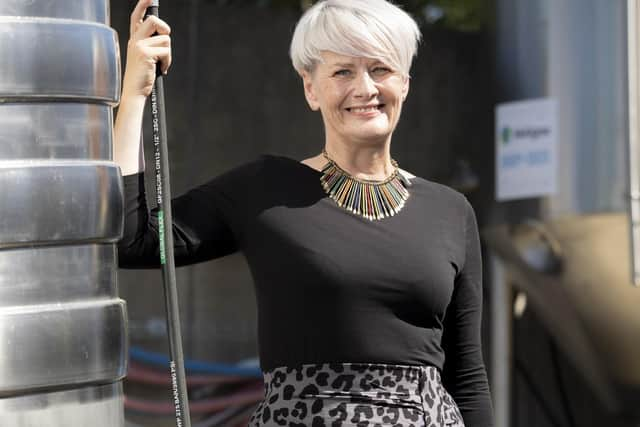Scottish biotechnology has a bright future - Johann Partridge
With Scotland’s national strategy aiming to grow the sector’s annual turnover to £1.2 billion by 2025, it’s an exciting time. I believe this target can be smashed if we fully capitalise on the unique opportunity industrial biotechnology offers to significantly contribute to economic transformation and decarbonisation.
We have already taken impressive steps towards securing this bright future, but to maximise economic return and move towards net zero, we must be bold. We need more investment in skills and infrastructure which will enable us to push all the way from technical proof of concept to full scale production in Scotland.
Advertisement
Hide AdAdvertisement
Hide AdWorking in the biotech sector requires very specific training. Through undergraduate courses, our universities provide an excellent theoretical grounding and a taste of the practical skills required for early-stage research and development. Crucial hands-on experience can be developed and honed further through invaluable industrial placements offered in many of our Masters and PhD programmes. However, with an ambitious vision for the sector’s future, we must invest in specialised training and infrastructure.


A critical issue is the lack of opportunities for students and new entrants to the industry to get stuck in and experience the challenges and practicalities of scaling lab-demonstrated bioprocesses towards production.
The Industrial Biotechnology Innovation Centre (IBioIC) made the first step in offering pilot scale training courses of this type in Scotland, but they don’t have the full complement of equipment or capacity to support the needs of a sector which is growing exponentially.
My entire career has centred around science and technology and spending four years at IBioIC gave me incredible insight into just how ready Scotland is to be a global leader in biotechnology.
I joined MiAlgae in 2020 having been sold on its recognition of a global issue and development of a solution. This solution will have a positive impact on the environment and economy and I wanted to be part of a team driven to take an idea founded in Scotland through to commercialisation here too.
Our new recruits acquire the necessary skills on the job from day one, by shadowing colleagues in our R&D lab or at our growing demonstrator site. We aim to bring them up to speed by providing the best in-house and external training, but this takes time and money and, as a pre-revenue SME, we are constrained.
Today, as part of Bioeconomy Week, I’m attending The Scotsman’s Green Skills Conference in Edinburgh. With climate change and energy at the forefront, opportunities like these provide an important platform to discuss how our biotech skills and expertise can achieve net zero targets.
I don’t doubt the Scottish Government’s vision for a net zero future. What I am concerned about is how we’re going to achieve it with inadequate facilities for gaining practical skills. We need somewhere where students can go to get valuable hands-on experience.
Advertisement
Hide AdAdvertisement
Hide AdThe skills required to deliver our plans for an energy efficient and sustainable future will change and we need to retain and upskill around 250,000 of the existing workforce over the next decade. We also need to attract new people and make the sector appealing.
I share Holyrood’s vision. But I also have my own. I want to cement Scotland’s position as an innovative testbed for new technologies and open the country up to new markets.
We can only do this, however, if we help SMEs demonstrate their outputs while giving their people valuable hands-on experience. Is a national facility where people can gain this experience a pipe dream? I don’t think so. The foundations are there but we need more support.
Dr Johann Partridge is Director of Operations at MiAlgae
Comments
Want to join the conversation? Please or to comment on this article.